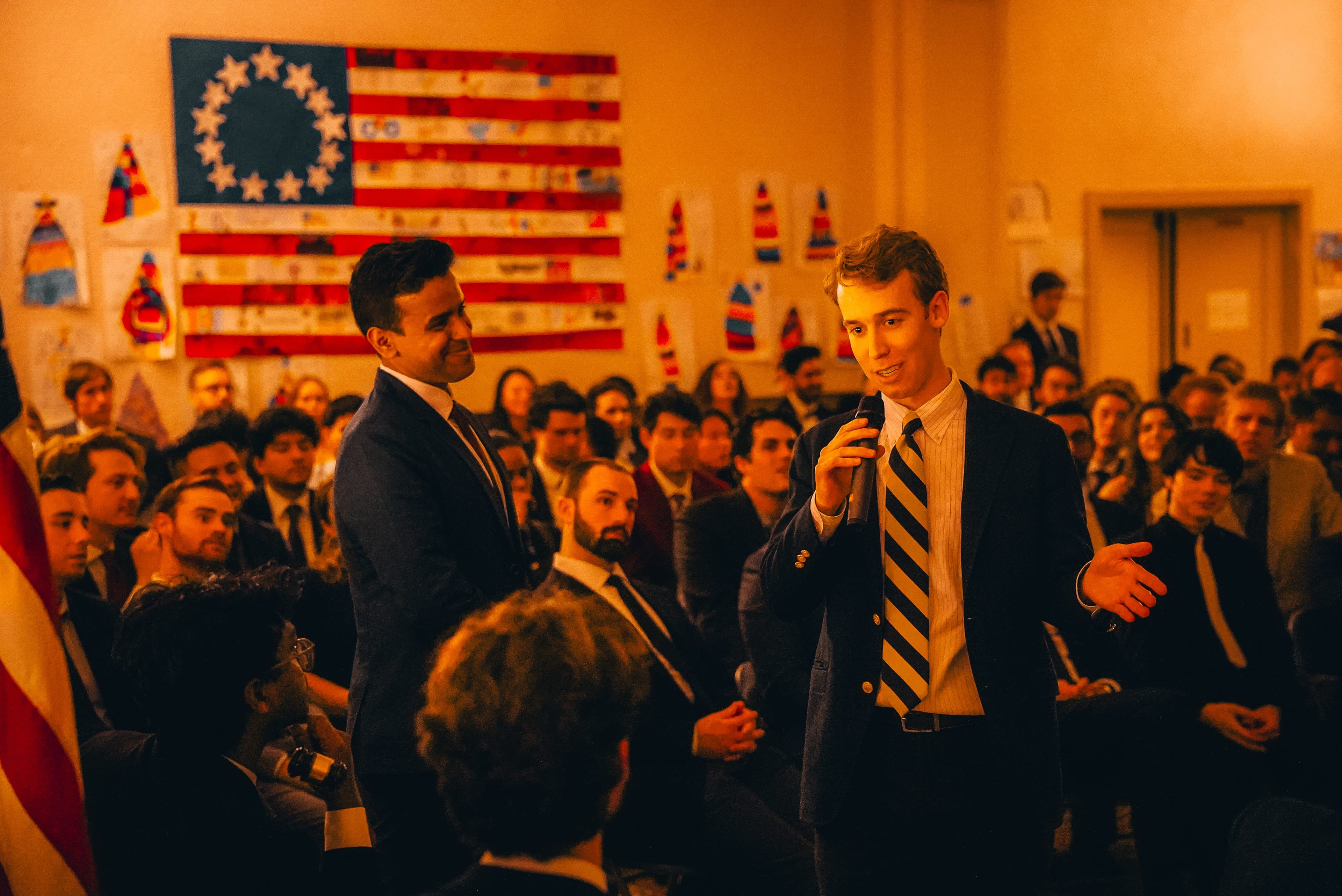
Meet the Secret Society Where Young Tech Debates the Future of the WestJan 30
the hamilton society, which hosts monthly debates inside a catholic church, is quickly becoming a cultural focal point in san francisco
May 3, 2023

When I was young, I noticed that some people on TV saw fried chicken, greens, cornbread, and black-eyed peas on a plate and called it Soul food. At some point, I learned that up north, this was considered black people’s cooking, but for me, it was my grandmother’s. There’s no difference between Southern food and soul food, apart from the name, but this hasn’t stopped the professional activist class from asserting racial ownership over the cuisine when it is presented without “context.” In 2021, Travon Jackson, executive director of the African American Cultural Center of the Capital Region in Albany, New York, told Times Union that white people could only avoid cultural appropriation while eating fried chicken if it is exhibited in “historical context”. According to Jackson, the “historical context” is that slaves served fried chicken to white people — which is true, but it's also true for virtually every dish which was ever eaten by a member of the Planter oligarchy. If you care to imagine a world without cultural appropriation, imagine being chased around an Upstate New York Cracker Barrel by a waiter yapping about slavery forever.
Like most things in America, fried chicken is a byproduct of cultural synthesis — in this case, Scottish and African. The contemporary American fixation on cultural appropriation is a strange one. It’s part of a larger attempt to replace the idea of America as a melting pot with multiculturalism. The melting pot has become seen as somewhat synonymous with assimilation, but it isn’t quite that. Melting may be a form of destruction, but it is also a method of production. This is why America has created so many new forms of music, literature, and art. Multiculturalism, on the other hand, is interested in the polite construction of a human zoo. It is a cosmopolitan ideal that fetishizes difference and seeks to preserve and ghettoize culture under the guise of diversity. Put cultures in cages, and you can gawk at them, coddle them, admire them even, but they'll never produce anything new. Destroying these artificial barriers and allowing cultures to co-mingle, collaborate, and borrow freely from one another is a dynamic, if somewhat Darwinian, process of cultural creation, and one which has served American culture well. Diversity isn’t our strength. Appropriation is.
Consider Selena Quintanilla. The Corpus Christi native has become seen as an emblem of Latin music but there is nothing Latin-American about her or her music, which was distinctly American — more specifically Texan and even more specifically Tejano — a melding of Spanish folk music, waltz, and polka, an organic fusion created by the meeting of Czech immigrants, German immigrants, and Texas Mexicans (Tejanos) in Central and South Texas nearly 200 years ago. This history didn’t matter to her fans, Hispanic or otherwise, and nobody seemed to care that she didn’t speak Spanish fluently and learned her lyrics phonetically. Decades after her tragic murder, another monolingual-English-speaking Tejana named Selena — Selena Gomez — faced backlash for releasing music in Spanish.